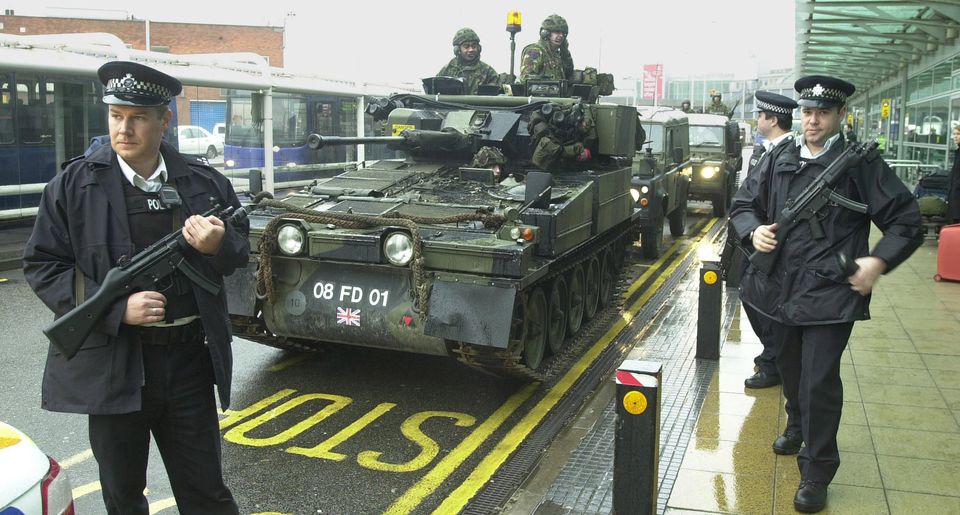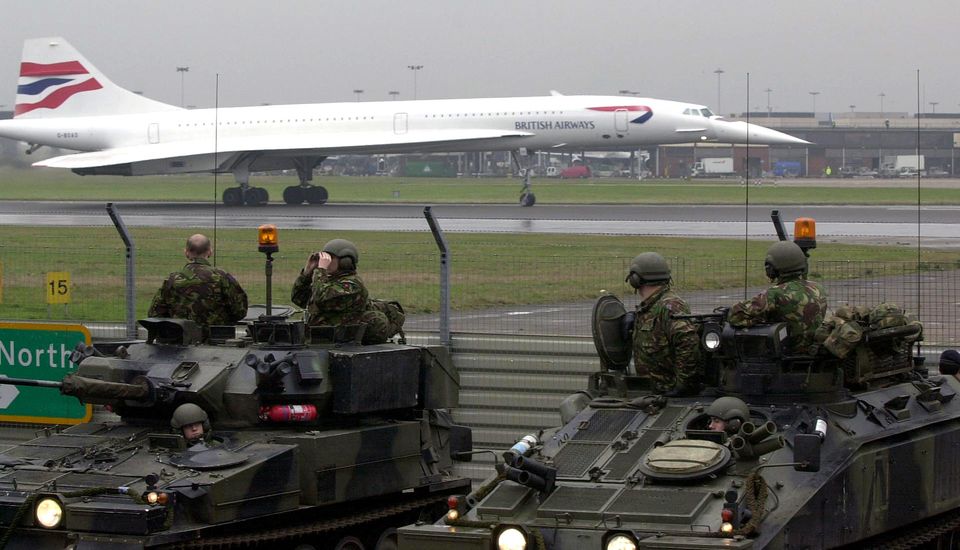Ministers in Tony Blair’s government were taken aback by the scale of a military operation to secure Heathrow Airport amid fears of an imminent al Qaida terrorist attack, according to newly released official files.
In striking scenes, around 450 heavily armed troops – some in armoured vehicles – were deployed to create a “ring of steel” around the UK’s busiest airport in February 2003 in an operation personally authorised by the prime minister.
The move, reportedly in response to warnings that terrorists had managed to obtain surface-to-air missiles which could be used to bring down a passenger jet, prompted widespread public concern.
The Army was deployed to reinforce the police presence at Heathrow (PA)
Files released by the National Archives at Kew, west London, show that then home secretary David Blunkett told the Cabinet that while the deployment had been agreed with the security services and the military, they had not been expecting such a high-profile show of force.
“The armed forces had not been expected to use their military hardware quite so visibly and this had, perhaps, led to the threat seeming more dramatic than was in reality the case,” he said, according to the minutes of the meeting.
He said the action had been authorised in response to a “specific terrorist threat” identified by the security services, but did not go into detail.
“The security services were continuing to work on assessing the threat but were having to strike a difficult balance between intervention and surveillance,” he added.
Troops look on as Concorde prepares to take off from Heathrow (Tim Ockenden/PA)
In discussion, ministers dismissed claims the deployment operation was “merely a tactic” to build support for the impending invasion of Iraq by British and US forces as “absurd but not surprising”.
But with the threat of Islamist terrorism on the rise after the 9/11 attacks on the Twin Towers in New York in 2001, they acknowledged lessons needed to be learned so as not to create unnecessary public alarm in the face of future incidents.
“Unfortunately, greater threats were likely from time to time for the foreseeable future and the government and the public would have to learn not to overact to them,” the minutes noted.
“In the past, IRA threats had been part of the nation’s life and there had been less hysteria in the way they were covered by the press.”

